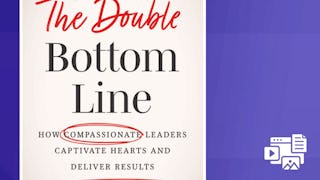- Browse
- Music Theory
Music Theory Courses
Music theory courses can help you learn chord progressions, scales, rhythm, and harmony. You can build skills in reading sheet music, analyzing compositions, and creating original pieces. Many courses introduce tools like notation software and digital audio workstations, that support composing and arranging music. You'll also explore concepts such as counterpoint, form, and orchestration, allowing you to apply your knowledge in various musical genres and styles.
Popular Music Theory Courses and Certifications
 Status: NewNewStatus: Free TrialFree TrialA
Status: NewNewStatus: Free TrialFree TrialAAirbus Beyond
Skills you'll gain: Order Management, Supply Chain Planning, Inventory Management, Demand Planning, Order Fulfillment, Supply Chain, Inventory Control Systems, Materials Management, Inventory Control, Production Planning, Supply Management, Supply Chain Systems, Production Schedule, Material Requirements Planning, Production Management, Risk Mitigation, Supply And Demand, Billing & Invoicing, Invoicing, Change Management
Beginner · Course · 1 - 3 Months
 Status: NewNewStatus: Free TrialFree TrialG
Status: NewNewStatus: Free TrialFree TrialGGoogle
Skills you'll gain: Leadership and Management, Initiative and Leadership, Leadership, Growth Mindedness, AI Enablement
4.8·Rating, 4.8 out of 5 stars89 reviewsBeginner · Course · 1 - 4 Weeks
 Status: NewNewStatus: FreeFreeL
Status: NewNewStatus: FreeFreeLLund University
Skills you'll gain: Interactive Learning, Environmental Issue, Systems Thinking, Sustainable Development, Critical Thinking, Sustainable Business, Corporate Sustainability, Research, Sustainability Standards, Cultural Responsiveness, Social Studies, Consumer Behaviour, Policy Analysis, Environmental Policy, Business Ethics, Case Studies, Economics
Beginner · Course · 1 - 3 Months
 Status: NewNew
Status: NewNewSkills you'll gain: Microsoft PowerPoint, Data Visualization, Sales Presentations, Public Speaking, Layout Design
Intermediate · Course · 3 - 6 Months
 Status: NewNewStatus: PreviewPreviewB
Status: NewNewStatus: PreviewPreviewBBoard Infinity
Skills you'll gain: Leadership and Management, AI Enablement, Business Leadership, Automation, AI Workflows, Digital Communications, Communication
Beginner · Course · 1 - 4 Weeks
 Status: NewNew
Status: NewNewSkills you'll gain: Active Listening, Empathy, Compassion, Diversity and Inclusion, Team Building, Emotional Intelligence, Leadership and Management, Leadership, Self-Awareness, Collaboration, Employee Engagement, Adaptability, Workforce Management
Mixed · Course · 3 - 6 Months
 Status: PreviewPreviewI
Status: PreviewPreviewIIE Business School
Skills you'll gain: Creative Thinking, Creative Problem-Solving, Brainstorming, Architectural Design, Storytelling, Design Thinking, Design Elements And Principles, Curiosity, Empathy, Design, Design Strategies, Critical Thinking and Problem Solving, Teamwork, Creative Design, Collaboration, Cultural Responsiveness
4.8·Rating, 4.8 out of 5 stars1.4K reviewsBeginner · Course · 1 - 4 Weeks
 Status: NewNewStatus: Free TrialFree Trial
Status: NewNewStatus: Free TrialFree TrialSkills you'll gain: Adobe Firefly, Prompt Engineering, Adobe Express, Ideation, Generative AI, Presentations, Storyboarding, Writing, Creativity, Storytelling, Adobe Creative Cloud, Creative Design, Design Thinking, Graphic and Visual Design, Collaboration, Visual Design, Image Quality
Beginner · Course · 1 - 4 Weeks
 Status: NewNewStatus: Free TrialFree Trial
Status: NewNewStatus: Free TrialFree TrialSkills you'll gain: Human Capital, Human Resources, Employee Performance Management, Performance Management, Human Resource Strategy, Human Resources Management and Planning, Talent Management, Workforce Planning, Talent Acquisition, Performance Appraisal, Talent Recruitment, Workforce Development, Labor Relations, Compensation and Benefits, Organizational Strategy, Succession Planning, Workforce Management, Employee Retention, Case Studies, Corporate Strategy
Beginner · Specialization · 1 - 3 Months
 Status: NewNewStatus: PreviewPreviewS
Status: NewNewStatus: PreviewPreviewSSaïd Business School, University of Oxford
Skills you'll gain: Prioritization, Strategic Prioritization, Strategic Leadership, Problem Solving, Systems Thinking, Complex Problem Solving, Critical Thinking and Problem Solving, Leadership, Strategic Decision-Making, Stakeholder Communications, Responsible AI, Initiative and Leadership, AI Enablement, Leadership Development, Decision Making, Artificial Intelligence, Analysis, Critical Thinking, Root Cause Analysis, Data Ethics
Beginner · Course · 1 - 4 Weeks
 Status: Free TrialFree TrialU
Status: Free TrialFree TrialUUniversity of California San Diego
Skills you'll gain: Unit Testing, Data Structures, Java, JUnit, Performance Tuning, Debugging, Algorithms, Object Oriented Programming (OOP), Theoretical Computer Science, Unstructured Data
4.8·Rating, 4.8 out of 5 stars2.2K reviewsIntermediate · Course · 1 - 3 Months
 Status: NewNewStatus: Free TrialFree Trial
Status: NewNewStatus: Free TrialFree TrialSkills you'll gain: Business Process Modeling, Systems Analysis, AI Workflows, Business Analysis, Generative AI, Stakeholder Communications, Systems Architecture, Solution Architecture, Business Process Automation, Stakeholder Analysis, ChatGPT, Technical Consulting, Software Architecture, Consulting, Systems Thinking, Business Communication
4.9·Rating, 4.9 out of 5 stars9 reviewsIntermediate · Course · 1 - 4 Weeks
Searches related to music theory
In summary, here are 10 of our most popular music theory courses
- Demand Forecasting and Inventory Management: Airbus Beyond
- Grow as a Manager: Google
- Dispelling myths about sustainable consumption : Lund University
- PowerPoint Storytelling for Business- Design & Present: Packt
- The Future of Work – Managing Hybrid & AI-Augmented Teams: Board Infinity
- Emotional Intelligence for Leaders and Managers: Packt
- Making Architecture: IE Business School
- Ideate and Visualize Creative Ideas Using AI Tools: Adobe
- Human Resource Management: Corporate Fundamentals: EDUCBA
- Leadership Problem-Solving with AI: Think Like a Leader: Saïd Business School, University of Oxford










